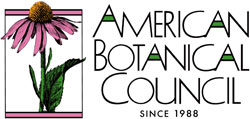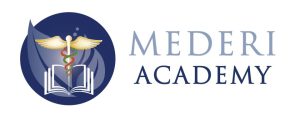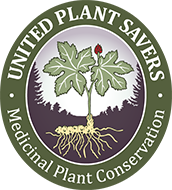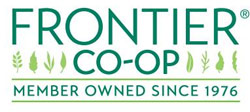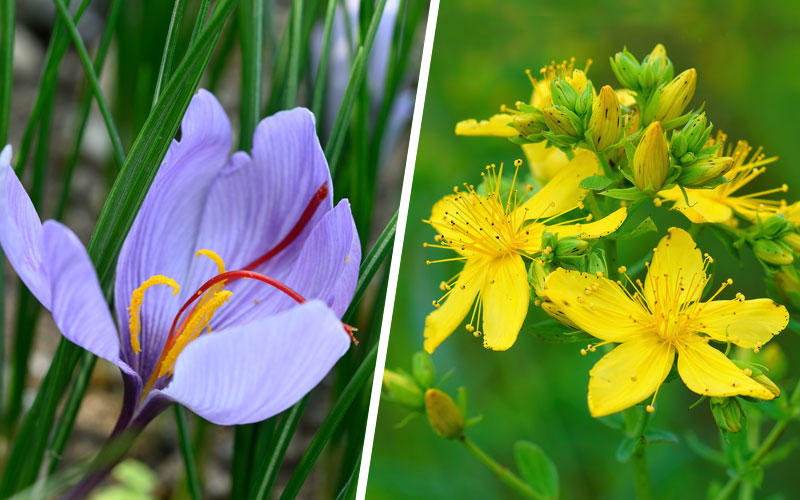
An audio series for health care providers – with continuing education for naturopathic physicians – bundled together in one discounted package:
- Eight (8) audio recordings (1.5 hours each)
- Digital book of notes (94-page PDF)
- Continuing education credits: 12 hours for naturopathic physicians
- Order with one click for $75 ($105 value)
Note: The information in this series is provided as a research resource and is not intended to replace diagnosis and treatment by a qualified health care practitioner.
Audio Series Details
(See below for full lecture titles and descriptions)
One click orders eight recordings (each 1.5 hours long) plus 94-page PDF of digital notes. Together these provide in-depth practical clinical information regarding children’s health for specific conditions including dental pediatrics, pediatric neurology and pediatric dermatology.
We have chosen the most common pediatric health conditions in these presentations, and there is a wealth of other topics on pediatric health in our library.
- Mary Rondeau, ND, RH (AHG) discusses creative (and tasty!) ways to get natural medicines into kids, including Ayurvedic and western dietary and herbal preparations.
- Mary Bove, ND examines different kinds of dermatitis and contributing factors to these conditions, including atopic, allergic/contact, seborrhea, diaper rash, impetigo, molluscum contagiosum, warts, dermatophytosis, tinea and others.
- Kenneth Proefrock, NMD expands the herbalist’s toolbox with nebulizers, eye drops, nasal sprays, mouthwash/gargles and enemas as he explores the most common presentations of pediatric patients and novel ways of addressing those conditions.
- Mary Bove, ND presents on rhinovirus, otitis media, croup, fever and other common EENT pediatric conditions, then dives into botanicals to help support children with these conditions.
- Kenneth Proefrock, NMD looks at key issues in common neurodevelopmental syndromes including ADHD, autism, cerebral palsy, and Tourette’s syndrome, then discusses how to develop effective interventions and create a systems-oriented approach to understanding development in children.
- Brianna Piché, ND, RH (AHG) describes the signs, symptoms and diagnosis of ADHD in children, then reviews conventional and pharmaceutical treatment recommendations, botanical nootropics, adaptogens and nervines to support attention and concentration.
- Mary Bove, ND looks at botanical, nutritional, dietary, and lifestyle strategies for managing chronic asthma as well as dealing with acute asthmatic events.
- Lastly, Mary Bove, ND closes the series presenting on one of the most common chronic (and preventable) childhood diseases: early childhood caries. Mary discusses standard medical treatment for pediatric dental health, and diet and lifestyle recommendations.
(Series price of $75 includes an 94-page PDF of lecture notes.)
Naturopathic CE:
- 12 total CME hours if not claimed previously for the lectures listed below
- 6 general + 6 pharmacy credits
- Approved by Oregon Board of Naturopathic Medicine (OBNM)
- Full CE details
| Presentation Title | Speaker(s) | General Hours (approved by OBNM) | Pharm Hours (approved by OBNM) |
|---|---|---|---|
| Keeping Kids Healthy | Mary Rondeau, ND, RH (AHG) | 1.5 | |
| Pediatric Dermatology | Mary Bove, ND | 1.5 | |
| Strategies for Acute Illness in Children: Avoiding Pharmaceuticals | Kenneth Proefrock, NMD | 0.5 | 1 |
| Pediatric Eyes, Ears, Nose and Throat Conditions | Mary Bove, ND | 0.5 | 1 |
| Neurodevelopmental Disorders in Children | Kenneth Proefrock, NMD | 0.5 | 1 |
| Pediatric ADHD: Botanical Nootropics and Mood Support in Childhood and Adolescence | Brianna Piché, ND, RH (AHG) | 1 | 0.5 |
| Botanical Therapies for Childhood Asthma | Mary Bove, ND | 1 | 0.5 |
| Botanical Insights into Early Childhood Caries | Mary Bove, ND | 1 | 0.5 |
Audio recordings included in this series:
Keeping Kids Healthy
Mary Rondeau, ND, RH (AHG)
Children are filled with love and sticky fingers and manage to bring home every bug from school. As a result, common childhood ailments regularly include diarrhea, vomiting, earaches, and coughs. While these common childhood conditions are important for strengthening the immune system, they can be burdensome to a working family. Half the battle is having a well-stocked botanical medicine cabinet, and the other half is getting kids to take the herbal preparations. Learn about creative (and tasty!) ways to get these medicines into kids. Ayurvedic and western dietary and herbal preparations are discussed. (Catalog Number 20ME29)
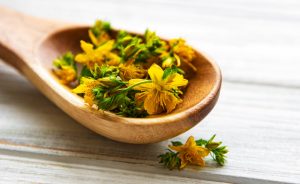 Pediatric Dermatology
Pediatric Dermatology
Mary Bove, ND
Discusses different kinds of dermatitis: atopic, allergic/contact, seborrhea, diaper rash, impetigo, molluscum contagiosum, warts, dermatophytosis, tinea and others. Reviews factors contributing to skin issues in children such as lifestyle, gut micro flora, allergens, infection, and stress, and contrasts the use of pharmaceuticals and natural medicines for these conditions. (Catalog Number 12SW11)
Strategies for Acute Illness in Children: Avoiding Pharmaceuticals
Kenneth Proefrock, NMD
Expanding the herbalist’s toolbox with nebulizers, eye drops, nasal sprays, mouthwash/gargles and enemas, we discuss the most common presentations of pediatric patients and novel ways of addressing those conditions. We describe managing the most pressing needs of the patient and their families in acute illness, the natural course for the resolution of those conditions and ways to assist the child’s body in that resolution. Included are specific botanical medicine strategies using tinctures, powders, topical agents and hydrotherapy techniques. Conditions include management of EENT/respiratory infections, digestive upsets and skin infections. We discuss both long and short-term side effects of the pharmaceuticals often prescribed for these cases. (Catalog Number 20SW13)
Pediatric Eyes, Ears, Nose and Throat Conditions
Mary Bove, ND
Naturopathic physician, Mary Bove, reviews the role of herbal medicines in the treatment of pediatric EENT conditions in this presentation. Mary examines rhinovirus, otitis media, croup, fever and other common EENT pediatric conditions, then dives into botanicals to help support children with these conditions, including Glycyrrhiza glabra, Pelargonium sidoides, Allium sativum, Euphrasia officinalis and more. (Catalog Number 11SW29)
Neurodevelopmental Disorders in Children
Kenneth Proefrock, NMD
In this presentation, naturopathic physician Kenneth Proefrock examines key issues in common neurodevelopmental syndromes found in children including ADD/ADHD, autism, cerebral palsy, Tourette’s syndrome and trichotillomania. We look at common aberrations in neurotransmitter functioning, how to develop reasonable and effective interventions, and how to create a systems-oriented approach to understanding neurological and behavioral development in children. (Catalog Number 11SW24)
Pediatric ADHD: Botanical Nootropics and Mood Support in Childhood and Adolescence
Brianna Piché, ND, RH (AHG)
We describe the signs, symptoms and diagnosis of ADHD in children and adolescents, review conventional and pharmaceutical treatment recommendations, and discuss botanical nootropics, adaptogens and nervines to support attention, concentration and co-occurring mental health conditions. (Catalog Number 23SW08)
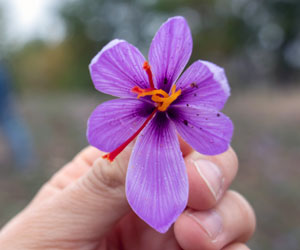 Botanical Therapies for Childhood Asthma
Botanical Therapies for Childhood Asthma
Mary Bove, ND
Currently there are over 6 million children in the USA suffering from asthma. Asthma is a common reason for kids missing school and one of the most common chronic health conditions that affect children. Management is key for reducing the occurrence, severity, and frequency of the symptoms along with improving quality of life. Look at botanical, nutritional, dietary, and lifestyle strategies for managing chronic asthma as well as dealing with acute asthmatic events. (Catalog Number 21ME04)
Botanical Insights into Early Childhood Caries
Mary Bove, ND
Early childhood caries is the most common chronic childhood diseases and one of the most preventable. This rapidly progressing infectious disease leads to tooth decay and oral pain and discomfort. Botanical medicines offer natural options for oral hygiene support, microbial management, tissue healing, and pain control. Discussion includes current standard medical treatment and diet and lifestyle recommendations. (Catalog Number 15SW08)
Plus Lecture notes to accompany these audio recordings in PDF Format (94-page digital book) included in the $75 package price.



